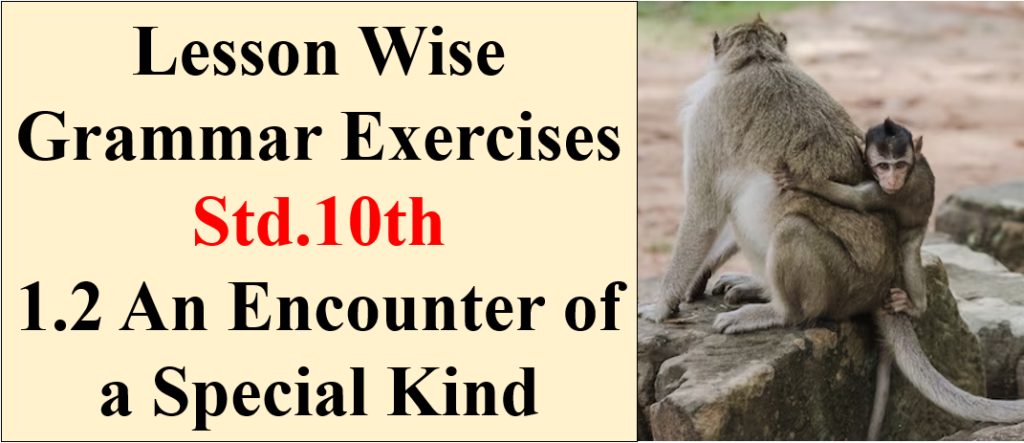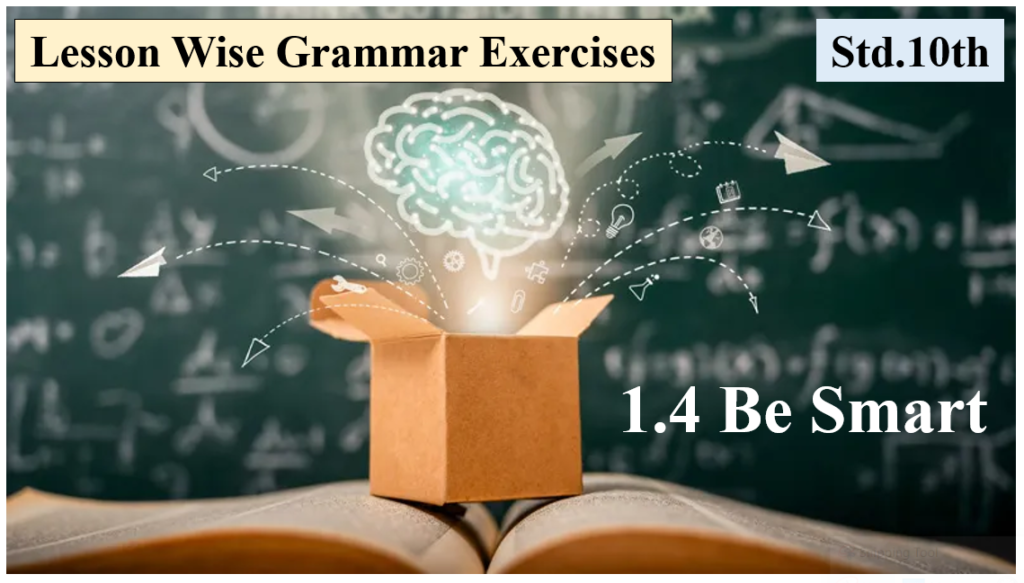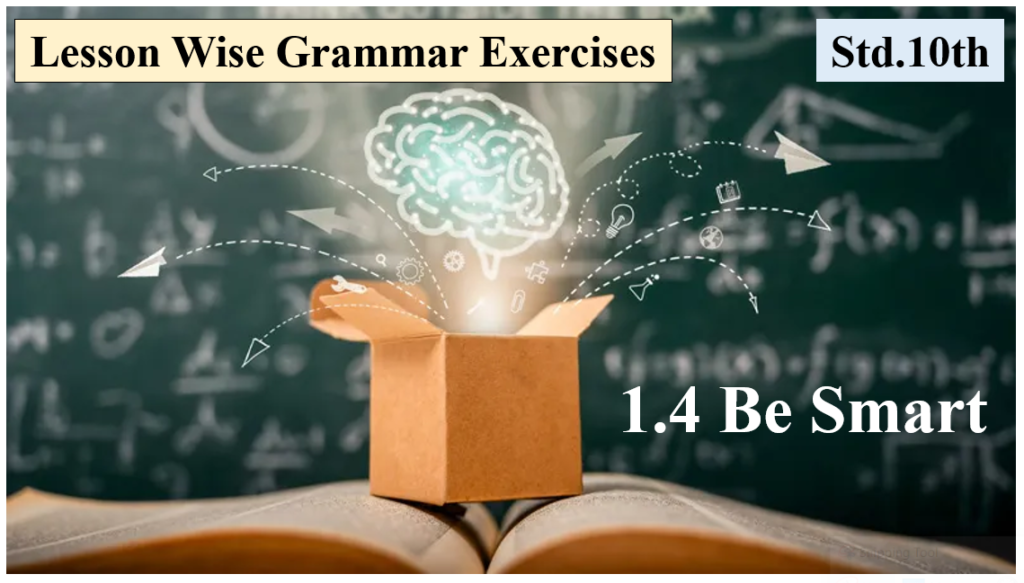
Std.10th Lesson Wise Grammar Exercises 1.4 Be SMART
Sub: English Std. X
• Gerund:
When the -‘ing’ form of a verb is used as a noun, it is known as a gerund a verbal noun. For example, The fighting went on. Here, we see that the -‘ing’ form of the verb
‘fight’ is used as a subject in ‘The fighting went on’. It does a work of a noun.
Read the following examples of gerunds:
• Gardening is an art.
• Cooking is a science.
• I enjoy reading poems.
• I like reading more than writing.
• Infinitives:
Sometimes the form of a verb in a sentence names the action but does not change according to tense, number or person. Such a form is known as a non-finite form or
an infinitive. An infinitive is used with or without ‘to’.
Examples:
How did people first begin to drink tea?
Underline the infinitive in the following sentences.
• It was funny to read words that stood still.
• Can I read the book?
• To be or not to be – that is the question.
• Finite:
Underline the verbs and choose the correct option from the brackets.
|
(a) |
Answer |
(present tense/past tense)
(present tense/past tense)
(present tense/past tense) |
Wrote: past tense Found: past tense Finds: present tense |
|
(a) |
Answer |
|
• Preeti was scornful. (singular/plural) • This is the old kind of school. (singular/plural) • They are sportsmen. (singular/plural) |
|
Thus, we see that verb forms show tense, number, etc. Here, the verb form changes
according to the subject. A verb form which is decided by and changes according to the
subject of the sentence is known as a finite verb.
Example:
- ‘You are very kind.’ If the subject ‘you’ is changed to ‘she, the sentence will
be ‘She is very kind.’
Now change the verb form according to the change in the subject.
- I don’t know. (Change ‘I’ to ‘She’)
Ans: She doesn’t know.
- My father knows. (Change ‘My father’ to ‘We’)
Ans: We know.
- I am following in your footsteps. (Change ‘I’ to ‘He’)
Ans: He is following in your footsteps.
Underline the gerund/present participles/infinitive.
- Setting goal may appear easy, but it is quite challenging.
Ans:
Setting goal may appear easy, but it is quite challenging.
Setting – Gerund
- Quantifying goals provide specific ways to track progress.
Ans:
Quantifying goals provides specific ways to track progress.
Quantifying – Gerund
- It is important to create goals that are within a current skill set or area of expertise.
Ans:
It is important to create goals that are within a current skill set or area of expertise.
to create – Infinitive
- We need to bring down life images down to earth and plan to execute our strategies.
Ans:
We need to bring life images down to earth and plan to execute our strategies.
- to bring – Infinitive
- to execute – Infinitive
- Finding the right footing, precisely mastering the skills and getting to the next place, all depend on how we approach and tackle the problem.
Ans:
Finding the right footing, precisely mastering the skills, and getting to the next place, all depend on how we approach and tackle the problem.
- Finding – Gerund
- Mastering – Present Participle
- Getting – Gerund

Ans:
Here is the classification of the words from the image into their respective columns:
|
Noun |
Adjective |
Adverb |
Verb |
Pronoun |
Preposition |
Conjunction |
Interjection |
|---|---|---|---|---|---|---|---|
|
trumpet |
aggressive |
directly |
tackle |
we |
of |
if |
oh |
|
absence |
natural |
exactly |
execute |
it |
from |
and |
|
|
imagination |
important |
clearly |
achieve |
but |
|||
|
expert |
specific |
precisely |
create |




